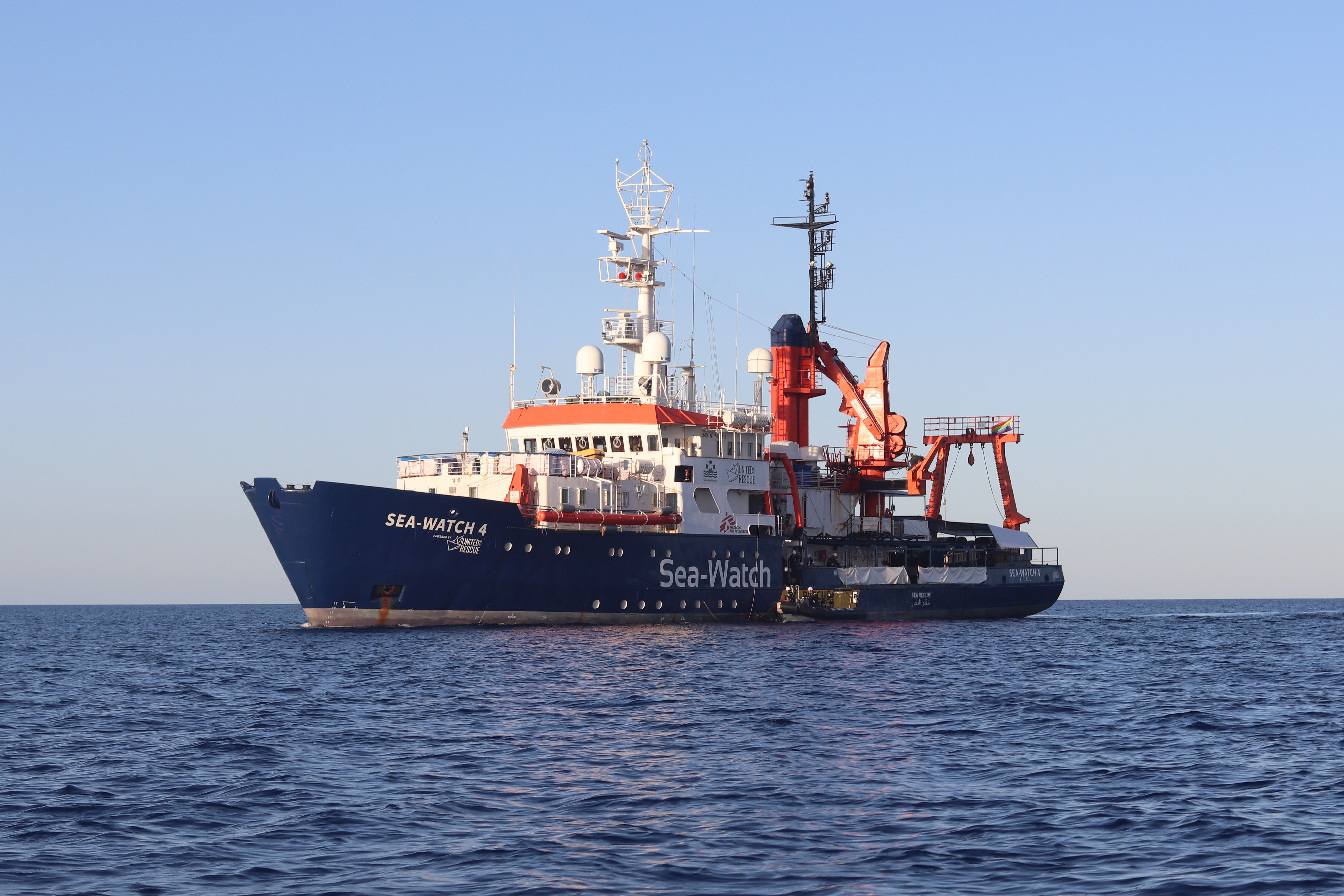Update: Sea-Watch 4 must be released to save lives in the Mediterranean
The search and rescue ship Sea-Watch 4 has been immobilised since 19th September after rescuing 354 people during its maiden lifesaving voyage (August 22 – 29). MSF is calling for its release.
“As I sit here now, prevented from doing my job at sea, I think of those we did not, will not, have the chance to rescue. I think of what it takes to risk your life for the chance of a secure, normal and dignified existence.”
Ilina Angelova, MSF humanitarian affairs officer on board the search and rescue ship Sea-Watch 4 in August and September 2020 (read more here).
European governments are leading a campaign to criminalise NGOs, manipulating maritime rules to prevent rescue ships from saving lives
- The Sea-Watch 4 is prevented from returning to the Central Mediterranean, detained under administrative block in the port of Palermo in Sicily.
- This marks the fifth time an inspection in an Italian port has stopped an NGO rescue ship from returning to the Central Mediterranean in as many months.
- Italian authorities are holding the ship on 22 ‘irregularities’, including 'systematically' saving people and having too many life jackets on board.
Further erosion of search and rescue capacity is costing lives at the world’s deadliest sea border
- Since Sea-Watch 4 was detained on 19th September, at least 69 people have died off the coast of Libya in two confirmed shipwrecks. A third disaster, in which 110 people died or went missing, was reported by Alarm Phone, but remains to be confirmed by the IOM or UNHCR. The bodies of those recently drowned are currently alleged to be washing up along the shores of North Africa.
- With or without rescue boats in the Central Mediterranean sea, people will and are still trying to escape Libya in unseaworthy rubber and wooden boats. In view of the complete absence of search and rescue capacity, continuing loss of life is tragically inevitable.
Europe is enlisting the Libyan coast guard to serve as its border guard, forcibly returning people to site of a deepening humanitarian emergency, arbitrary detention and cyclical abuse
“Patrick told me how he was held in captivity in Libya. One day he was taken by his captors to work in a compound owned by the commander of an armed group. The compound was close to a big road in the centre of a city, hidden behind a tall concrete wall so that no one could know what was happening inside.
“Patrick – alongside other refugees and migrants – was forced to work on the commander’s house. There was one rule: they were not allowed to speak, cough or make any noise at all. Anybody who broke this rule was shot.”
Ilina Angelova, MSF humanitarian affairs officer (read more here).
- Libya is not a safe place. International and European bodies, including the UN and EU Commission, have repeatedly confirmed this. Yet more than 9,000 people have been intercepted and forcibly returned by the Libyan coast guard to Libya since the beginning of the year, as part of a deal financed and facilitated by the EU.
- On 8 October, two ships belonging to the Libyan coast guard were returned to Libya after undergoing substantial repairs paid for by Italy and the European taxpayers. These vessels will be used to capture people at sea and return them to the same dangerous and inhumane conditions in Libya they are trying to flee.
The new EU Pact for migration consolidates a system that denies responsibility for those in distress at sea and penalises those seeking to save lives
- Despite a recent statement by President of the European Commission that “saving lives at sea is not optional”, in its new pact on migration the EU once again failed to take the opportunity to set out concrete, immediate, measures to coordinate and conduct rescue operations and save people from drowning at Europe’s most deadly border.
- The UK government also has a responsibility to protect lives both at sea and in Libya, particularly given the current lack of search and rescue capacity.
ENDS
.jpg)
.jpg)
.jpg)